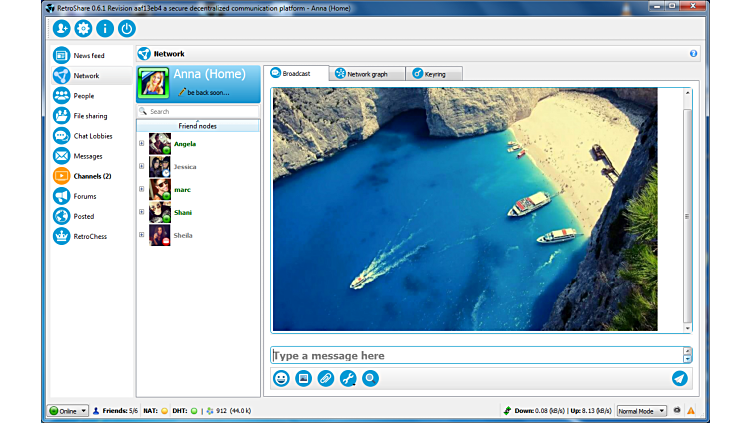

The data can be a very large object, which can be caused by an attacker continuously sending sdp packets and this may cause the service of the target device to crash.įluentd collects events from various data sources and writes them to files to help unify logging infrastructure. In affected versions a vulnerability exists in sdp_cstate_alloc_buf which allocates memory which will always be hung in the singly linked list of cstates and will not be freed.
#Spark airdrop Bluetooth#
The affected versions are before version 8.13.12, and from version 8.14.0 before 8.20.0.īlueZ is a Bluetooth protocol stack for Linux. An attacker can exploit the vulnerable "username" parameter in login.php and retrieve sensitive database information, as well as add an administrative user.Īffected versions of Atlassian Jira Server and Data Center allow anonymous remote attackers to view private project and filter names via an Insecure Direct Object References (IDOR) vulnerability in the Average Time in Status Gadget.
#Spark airdrop full#
ApiQueryBacklinks (action=query&list=backlinks) can cause a full table scan.Īn un-authenticated error-based and time-based blind SQL injection vulnerability exists in Kaushik Jadhav Online Food Ordering Web App 1.0. MediaWiki before 1.36.2 allows a denial of service (resource consumption because of lengthy query processing time). Visiting Special:Contributions can sometimes result in a long running SQL query because PoolCounter protection is mishandled. When a user is blocked after submitting a replace job, the job is still run, even if it may be run at a later time (due to the job queue backlog) The ReplaceText extension through 1.41 for MediaWiki has Incorrect Access Control. This allows an attacker to access all the data in the database and obtain access to the webTareas application. WebTareas version 2.4 and earlier allows an unauthenticated user to perform Time and Boolean-based blind SQL Injection on the endpoint /includes/library.php, via the sor_cible, sor_champs, and sor_ordre HTTP POST parameters. This created a memory leak that, over time, could lead to a denial of service via an OutOfMemoryError.
#Spark airdrop upgrade#
The object introduced to collect metrics for HTTP upgrade connections was not released for WebSocket connections once the connection was closed.
#Spark airdrop update#
Since validation will only continue once the update of an RRDP repository has concluded, this delay will cause validation to stall, leading to Routinator continuing to serve the old data set or, if in the initial validation run directly after starting, never serve any data at all. Thus, if an RRDP repository sends a little bit of data before that time-out expired, it can continuously extend the time it takes for the request to finish.

While Routinator has a configurable time-out value for RRDP connections, this time-out was only applied to individual read or write operations rather than the complete request. This can be used to effectively stall validation. In NLnet Labs Routinator prior to 0.10.2, a validation run can be delayed significantly by an RRDP repository by not answering but slowly drip-feeding bytes to keep the connection alive. This might allow attackers to conduct timing attacks.

There is a clear correlation between execution time and private key length, which may cause disclosure of the length information of the private key. This can be exploited to get full root access.Ĭrypto++ (aka Cryptopp) 8.6.0 and earlier contains a timing leakage in MakePublicKey(). When trying to exec a setuid executable, there's a window of time when the process already has the new privileges, but still refers to the old task and is accessible through the old process port. An issue was discovered in GNU Hurd before 0.9 20210404-9.


 0 kommentar(er)
0 kommentar(er)
